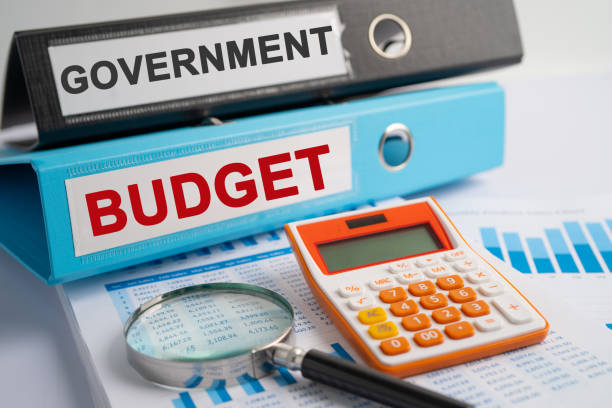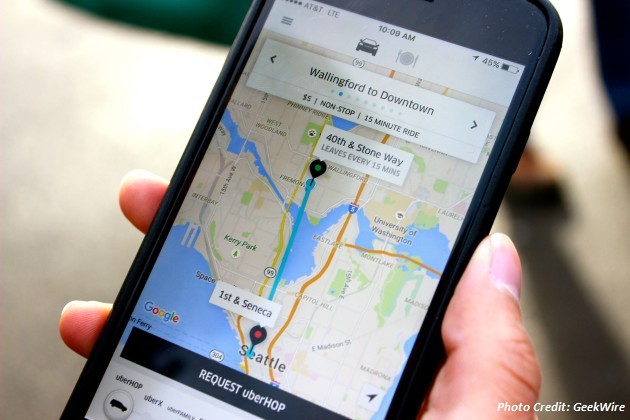A coalition of lawmakers and business groups sent State Auditor Troy Kelley a letter yesterday requesting a performance audit of I-937 (Energy Independence Act).
Dear State Auditor Troy Kelley,
In 2006, 52% of voters approved I-937 which 'requires large utilities to obtain fifteen percent of their electricity from new renewable resources such as solar and wind by 2020 and undertake cost-effective energy conservation.' Despite the abundance of Washington’s hydro power, this source of renewable energy was excluded from counting towards the I-937 targets.
Because I-937 charged the State Auditor’s office with certain monitoring requirements of its provisions, we believe it would be appropriate for you to utilize the powers granted by I-900 to conduct an independent performance audit of how the law is impacting the energy market in Washington and if the law’s promises, including reducing carbon emissions, are being realized.
Among the issues we believe should be explored:
- How many others states/countries with renewable energy production targets exclude hydro generated power from their targets?
- Is the implementation of I-937 saving businesses and consumers money as promised?
- Are the renewable energy targets of I-937 resulting in cheaper energy production as promised?
- Have the renewable energy requirements reduced the carbon intensity of Washington’s electricity?
- How much have the policies of I-937 either reduced or increased the electricity bills for businesses, governments, and private residences and by how much?
- Have the policies of I-937 resulted in Washington utilities selling excess hydro power to other states?
With the Governor vetoing a more limited study concerning I-937 in the state budget we believe the independent voice that you are able to provide with a performance audit will be critical as the state moves forward with implementing I-937 and ensuring its promises are met.
Joining Washington Policy Center in signing the letter to the State Auditor:
Sen. Michael Baumgartner, Sen. Sharon Brown, Sen. Doug Ericksen, Sen. Mike Hewitt, Sen. Jim Honeyford, Sen. Mark Schoesler, Sen. Tim Sheldon, Rep. Larry Haler, Rep. Paul Harris, Rep. Matt Manweller, Rep. Terry Nealey, Rep. Kevin Parker, Rep. Liz Pike, Rep. Joe Schmick, Rep. Shelly Short, Rep. Maureen Walsh, Greater Spokane Incorporated, Lake Chelan Chamber of Commerce, Moses Lake Chamber of Commerce, Pasco Chamber of Commerce, Tri-City Regional Chamber of Commerce, Washington State Farm Bureau and Yakima Chamber of Commerce.
The Legislature had attempted to answer some of these questions with a budget proviso using its legislative auditor, JLARC, but the Governor vetoed the review.
Inslee also vetoed a study that would have examined the cost of implementing the state's renewable energy mandate, Initiative 937. The proviso instructed the Legislature's auditing agency, known as JLARC, to examine the impact of requiring energy consumers to buy increasing amounts of expensive, renewable energy. Inslee offers two reasons for the veto.
First, he says I-937 has cost containment controls. This is technically true but it is unclear how these limits would be enforced. In the case of private utilities, rates are approved by the Utilities and Transportation Commission. Ratemaking, however, is private, allowing no public oversight of these decisions. The only organizations with the information necessary to argue that cost containment limits are being exceeded are the utility who requested the rate or the commission that approved the rate. There is an ombudsman in the Office of the Attorney General who also has access to the information and can theoretically raise issues, but there is no true public oversight.
Second, the Governor argues that such an analysis will be completed as part of the climate study being completed this year, arguing that both costs and benefits should be included. That is a reasonable argument, but it should be clear what any appropriate study will find. Renewable energy costs more than hydro, nuclear or other forms of energy, meaning it will certainly add costs as we shift from low-cost hydro to high-cost renewables. The benefits, however, are very limited.
At the most recent meeting of the Governor's Climate Study Committee, however, the focus was on the carbon reduction of I-937 but the scope did not include an analysis of the measure's costs.
The Governor's veto of the I-937 JLARC review drew this response from the Tri-City Herald (in-part):
We are scratching our heads at why Gov. Jay Inslee vetoed the environmental effectiveness study the House and the Senate approved.
In fair disclaimer, we've never supported Initiative 937 -- the measure that forces utilities to increase their use of renewable energy -- and believe the study would prove it's expensive and ineffective.
Like so many initiatives, the title sounds good, but the devil is in the details . . .
It's a little late now that the study has been vetoed, but we still would like to see a thorough analysis of the effectiveness of I-937. If the initiative is performing the way it was intended to, let's give it a chance to prove itself. If not, the public deserves to know that too.
The coalition letter to the State Auditor wasn't the only development concerning I-937 yesterday. As reported by the Tri-City Herald:
The Energy Independence Act creates a 'green versus the poor' conflict, said one speaker at a state Senate committee hearing in Richland on Monday evening.
The Senate Energy, Environment and Telecommunications Committee held the hearing to learn about unintended consequences of the act. About 85 people attended.
Most of those who testified were concerned about increased costs of buying power produced by renewable energy -- particularly when utilities already have adequate power, much of it hydropower, under contract for years to come.
Testifying at the hearing last night, Todd Myers, Environment Director for WPC, said:
There are several questions to consider. First, is I-937 reducing energy costs? Because we can't audit the utilities commission there is no way for the public to know what prices we are being charged for renewable energy. Second, are we getting the environmental benefits that were promised? Because our electricity is virtually carbon free already, are we seeing any improvements for the additional costs? Finally, we should shift more of the burden of these costs from the poor to the rich by allowing voluntary purchases of renewable energy credits to count toward the mandated goals.
Additional Information
Coalition letter to State Auditor Troy Kelley requesting performance audit of I-937



